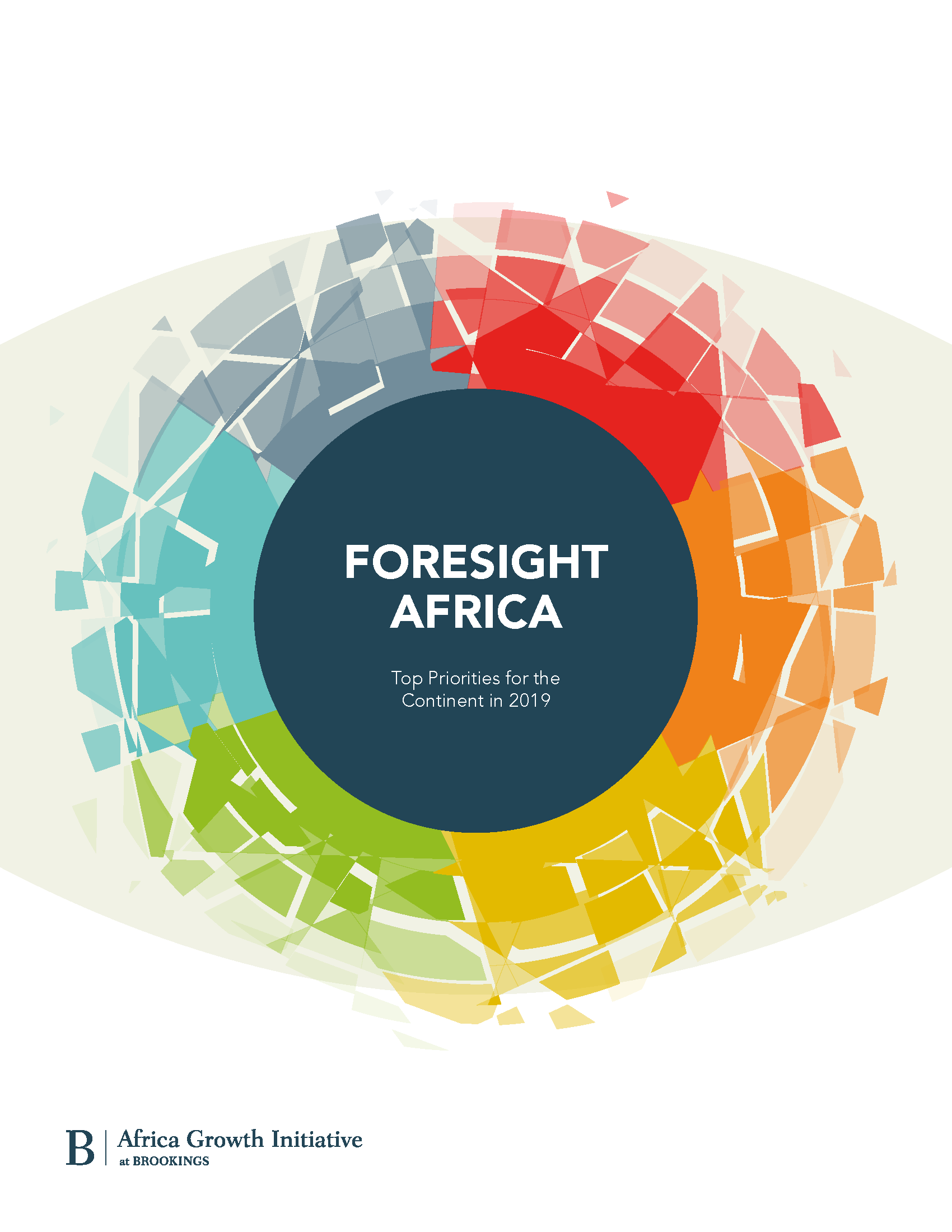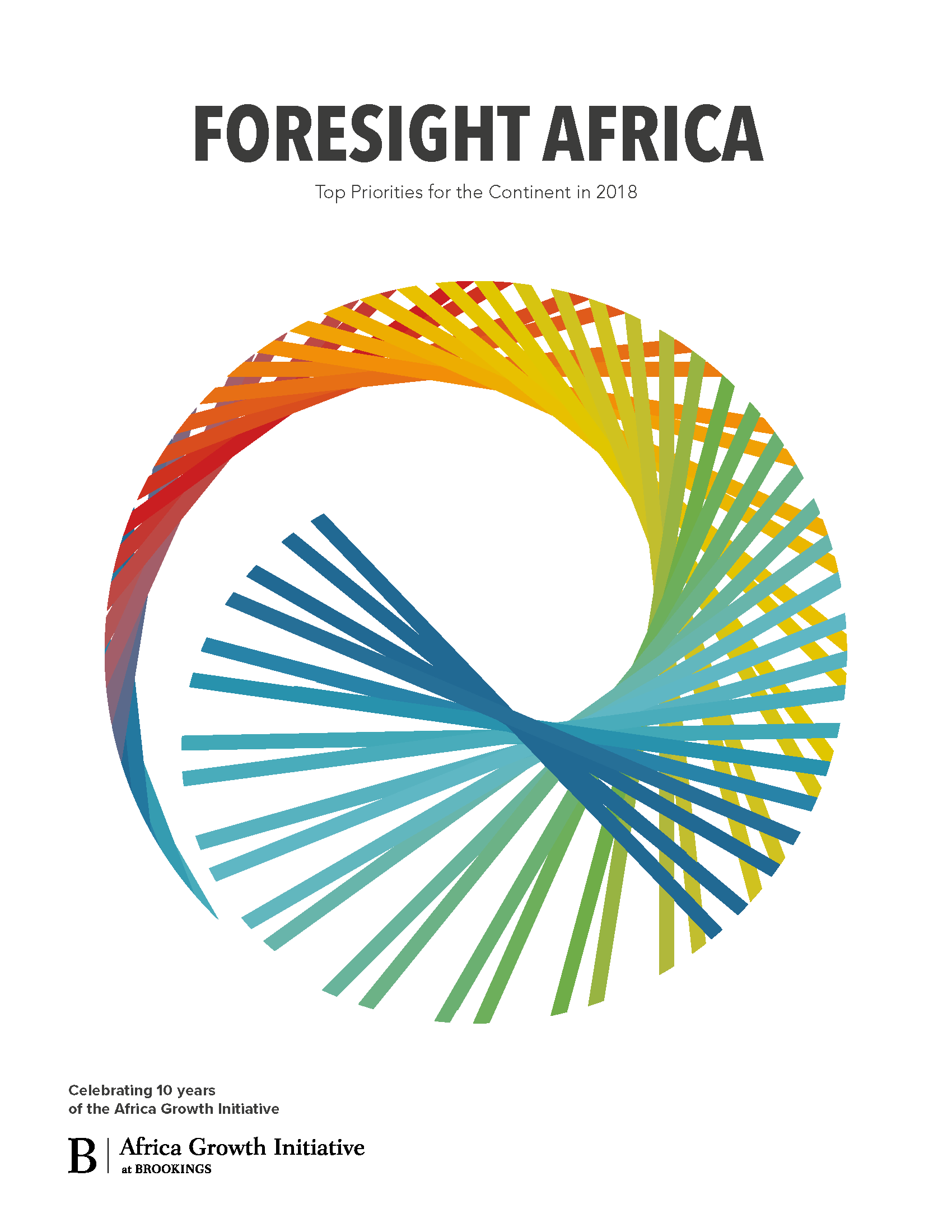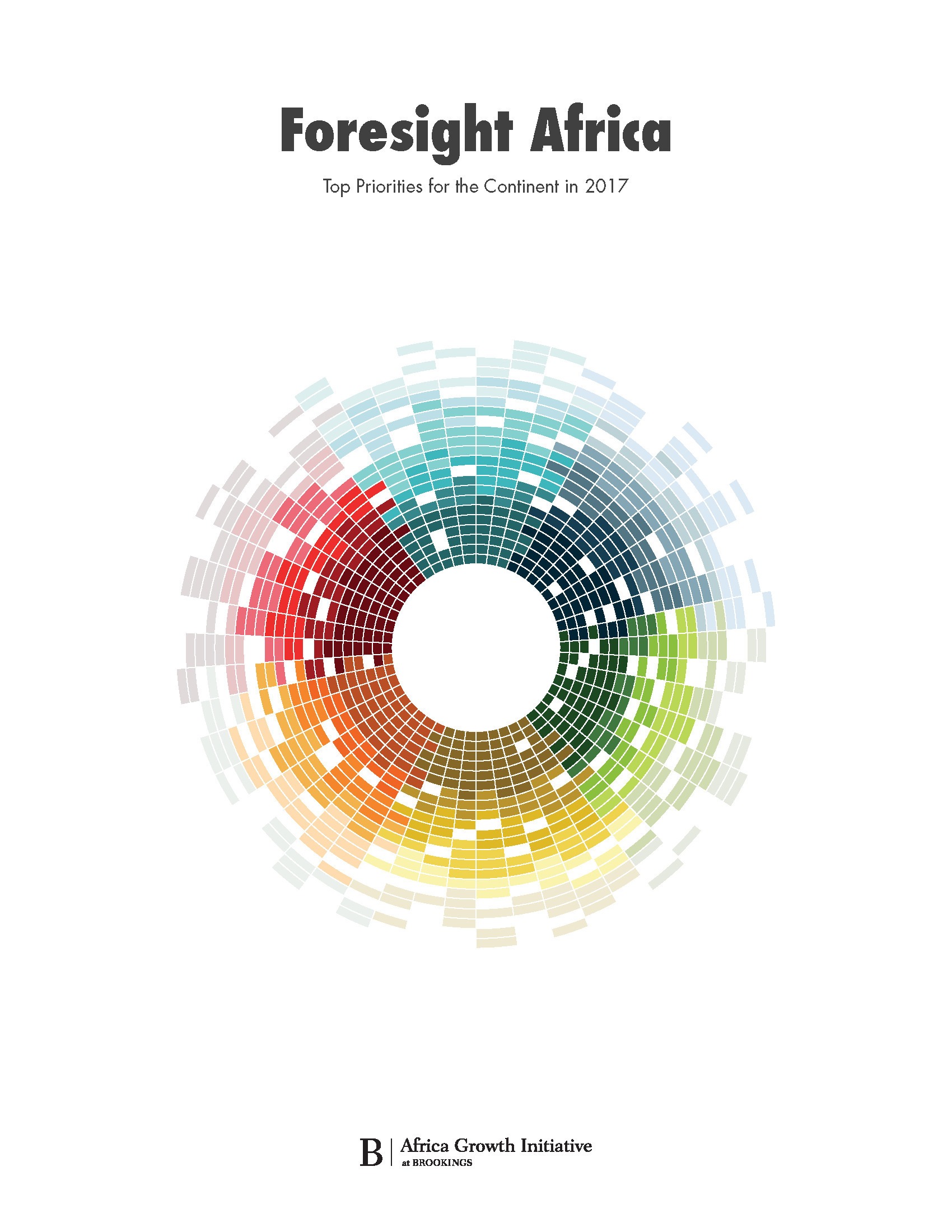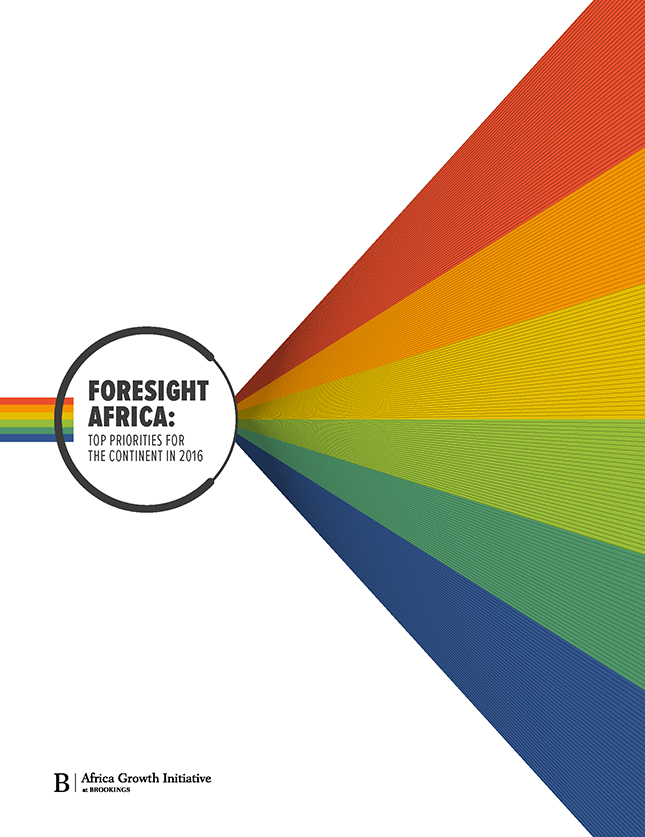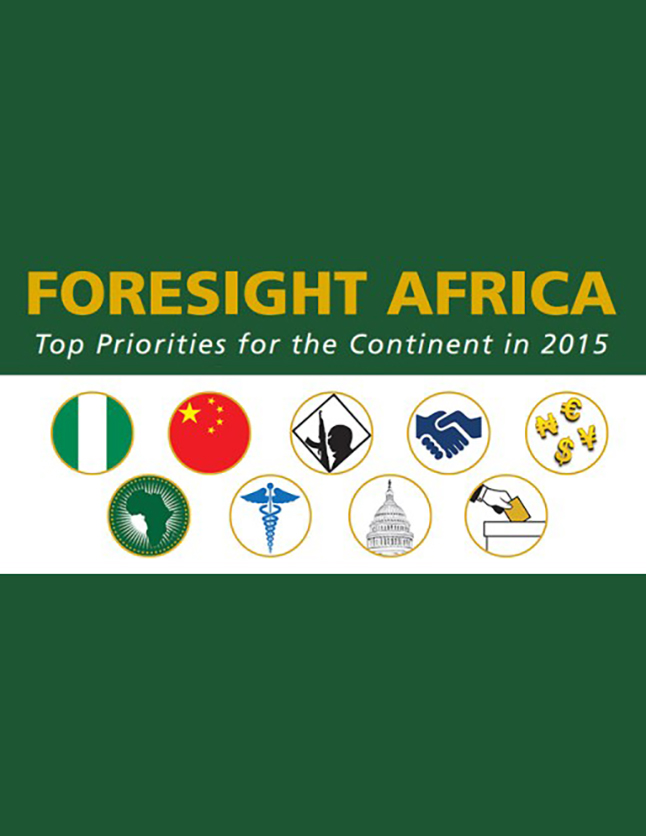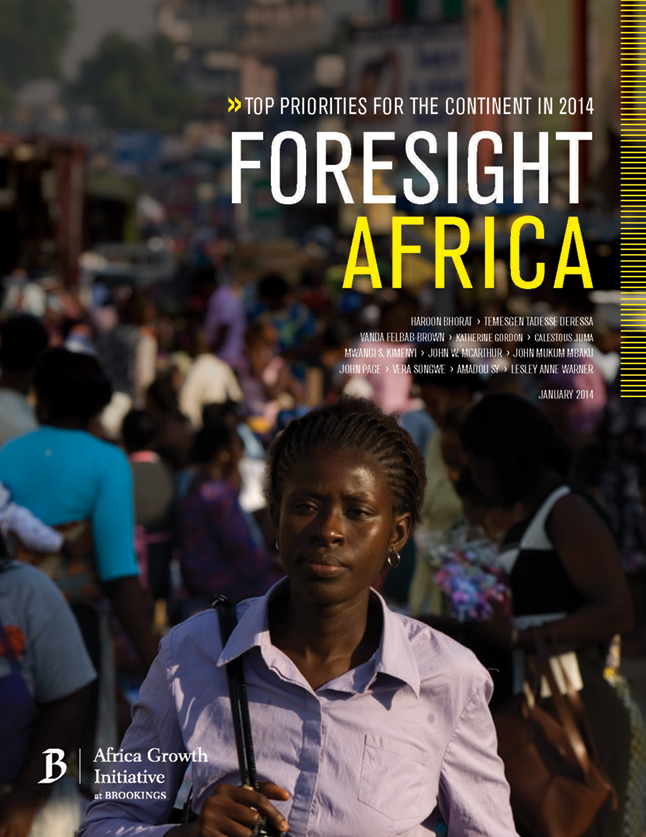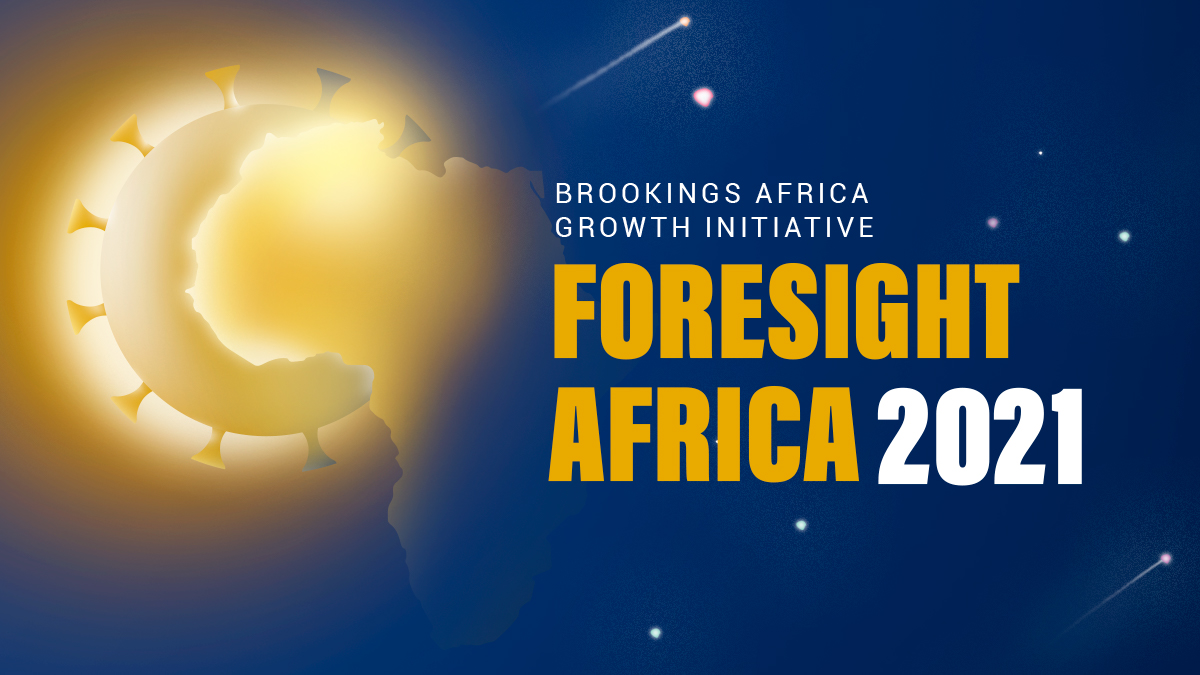Foresight
Africa 2021
Upcoming Event
Foresight Africa:
Top Priorities for the Continent in 2021
On January 27, AGI will host a Foresight Africa launch featuring a high-level panel of leading Africa experts to offer insights on regional trends along with recommendations for national governments, regional organizations, multilateral institutions, the private sector, and civil society actors as they forge ahead in 2021.
Report Overview
With this and every iteration of Foresight Africa, we aim to capture the top priorities for the region in the coming year, offering recommendations for African and global stakeholders for creating and supporting a strong, sustainable, and successful Africa. In doing so, we hope that Foresight Africa 2021 will promote a dialogue on the key issues influencing development policy and practice in Africa during the upcoming year. Such ideas will ultimately provide sound strategies for sustaining and expanding the benefits of economic growth to all people of Africa in the years ahead.
Browse through the chapters belowThe Great Reset:
Relaunching African economies
Although the virus was slow to arrive on Africa’s shores, the economic impacts of the disease were not, as the global economy halted and Africa’s growing, largely informal, service-based economy was forcibly shut down to pre-empt the disease’s spread. Until that point, the region was experiencing unprecedented growth and accounted for many of the fastest growing emerging market economies—though, that growth was, disappointingly, largely jobless and not necessarily in the most productive sectors. Thus, in chapter 1, our authors offer strategies for how Africa’s policymakers can approach the pandemic as an opportunity for a “great reset” of their economies so that they can grow back stronger than ever before.
Read Chapter 1Support for public health:
Preparing for the next pandemic
If leaders don’t stop the virus and secure the health of their people, these economies cannot grow. Indeed, given already poor health outcomes in the region, African citizens are uniquely vulnerable to widespread disease and face severe, longer-term consequences of getting sick. While Africa seems, so far, to have been spared the worst of COVID-19, no one knows what the next pandemic threat might look like, nor where it will come from. What is certain, though, is that the next pandemic is not so much a matter of if but when. With this idea in mind, in Chapter 2, our experts share their strategies for shoring up health systems on the continent to be better prepared for such a pandemic in the future.
Read Chapter 2Human development:
Protecting vulnerable populations
Progress on human development cannot halt in the face of the virus, as the region stands to lose so many of the massive gains in health and education in recent years. In Chapter 3, our authors debate strategies for maintaining the momentum of recent years and the role of the Sustainable Development Goals in this new world. Given the central role of women in the pandemic response as well as their unique vulnerability under COVID-19, we also explore ways to better support African women and girls both now and in the long term.
Read Chapter 3Viewpoints
The future of data: Unmasking community-level differences to better address food insecurity & The SDGs are our compass for bolstering Africa’s long-term COVID recovery & Africa faces a hard choice on the SDGs under COVID-19 & Invisible lives, missing voices: Putting women and girls at the center of post-COVID-19 recovery and reconstruction &Private sector leadership:
Building African businesses and creating jobs
Without investment in Africa’s people, businesses, and resources, that much-needed economic growth will not surface. As the world looks to reopen, major players in African economies are rethinking their roles, retooling their business models, and rediscovering how their unique strengths can benefit the region more broadly. In Chapter 4, then, our authors explore the top challenges facing African entrepreneurs and businesses as they look to restart and grow, as well as posit ideas for encouraging both the growth of the private sector and its involvement in the post-pandemic recovery.
Read Chapter 4Continental integration:
Uniting a revitalized Africa
The need for regional unity and economic integration has never been more important, especially for these African businesses. While the pandemic has thrown a wrench into the implementation of the promising African Continental Free Trade Agreement, African leaders must continue to move forward with the ambitious project. Indeed, an Africa with more open economic boundaries will not only decrease the region’s reliance on the global economy and enhance the economic prospects of her people, but also facilitate access to important goods and services to make its citizens healthier and more prosperous. In Chapter 5, then, our authors explore other ways in which a united Africa makes for a stronger Africa and offer recommendations for enhancing those relationships.
Read Chapter 5Viewpoints
Priorities for supporting trade under a build-back-better agenda & Facilitating the transformational AfCFTA: Tools for eliminating bottlenecks & Improving infrastructure in Africa: Creating long-term resilience through investment & Building African economies back, better and stronger than before &Good governance:
Building trust between people and their leader
Underpinning the response to these complex health and economic challenges is good governance. Strengthened democratic institutions, transparent elections, and inclusive reforms are key to building and maintaining safe and productive societies. The extent to which governments can best serve their people not only during crises, but at all times, depends on mutual trust between government and their people. Thus, in Chapter 6, our experts delve into the complex relationship between governments and citizens, especially in times of crisis, to examine how leaders can govern inclusively, fairly, and effectively.
Read Chapter 6Viewpoints
Entrenching democracy in African countries: Policy imperatives for leaders in 2021 & Governance in Africa: Citizen dissatisfaction is growing, and COVID-19 is likely to reverse recent gains & Biden, democracy, and Africa & All of us together: Governing Malawi & Voting in a pandemic: Lessons for elections in Africa in 2021 &Past Reports
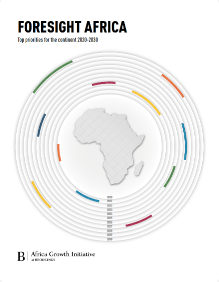
Foresight Africa: Top priorities for Africa in 2020-2030
1.
2.
3.
4.
5.
6.
•
•
•
•
•
•
•
•
•
•
•
•
•
•
•
